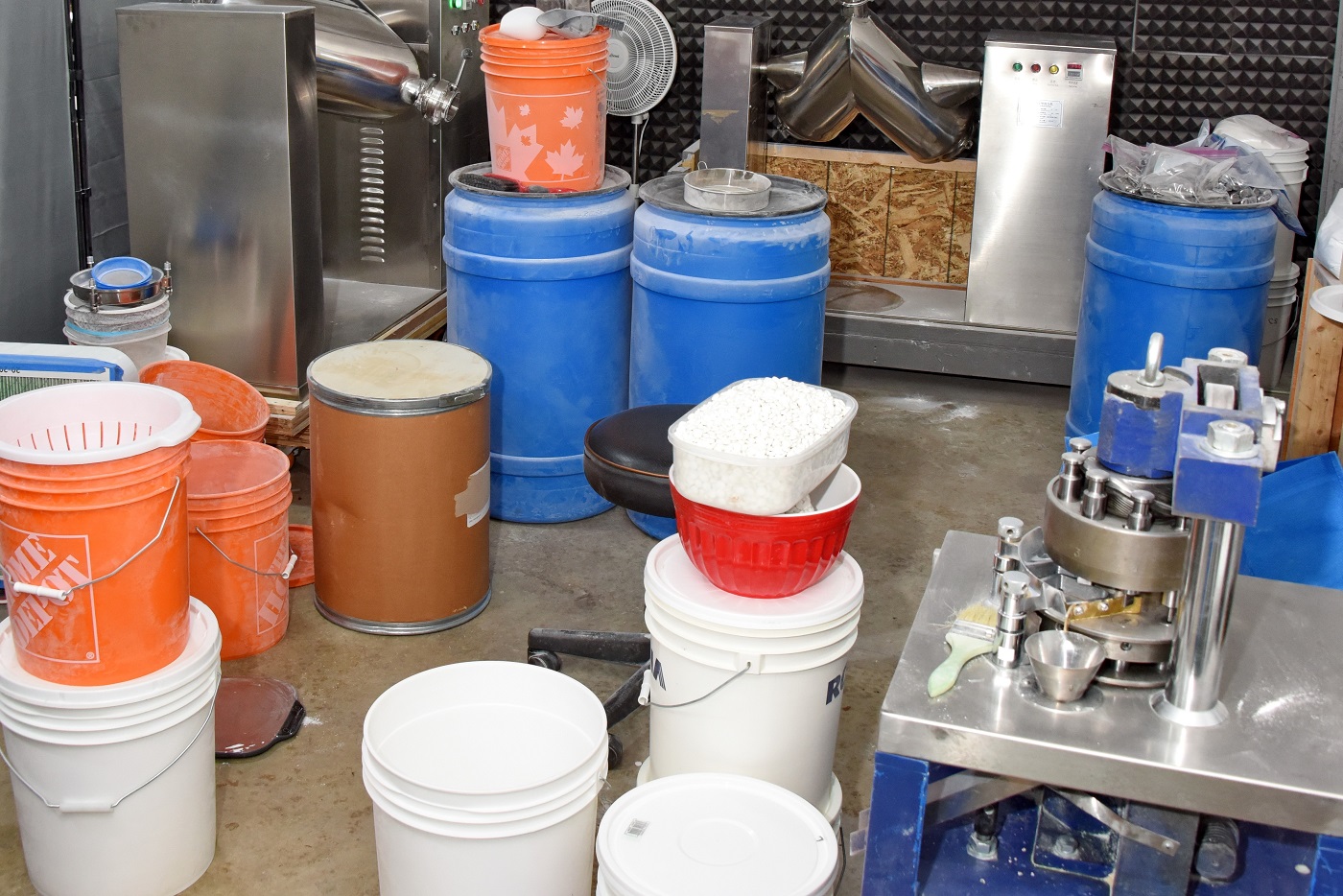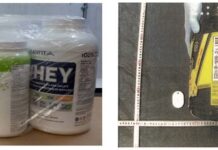Main suspects: Michael Manpreet Johal, Richard Sen, Jagdeep Singh Cheema, Michael David Rast and Kevin Moebes
EIGHT members of a BC-based criminal organization have been charged with numerous drug- and weapons-related offences as a result of an investigation by BC RCMP Federal Serious and Organized Crime (FSOC), police announced on Friday.
One of the suspects was also arrested by the Integrated Homicide Investigation Team (IHIT) for his alleged involvement in a gang-related murder plot.
Police said the main suspects of this investigation are Michael Manpreet Johal, Richard Sen, Jagdeep Singh Cheema, Michael David Rast, and Kevin Moebes.
On February 21 and 23, BC RCMP FSOC, and IHIT investigators conducted a coordinated series of raids across the cities of Surrey, Richmond and Delta and arrested Richard Sen, Jagdeep Singh Cheema, Kevin Moebes, and Michael David Rast. In addition to the drug- and weapons-related charges, Michael Johal was also charged with conspiracy to commit murder.
This multijurisdictional transnational organized crime investigation was initially launched by the BC RCMP’s FSOC Major Projects Team in September 2022 and that led to 11 search warrants being executed on March 1, 2023. The major multi-agency enforcement action spanned across the cities of Vancouver, North Vancouver, Delta, Richmond and Surrey.
It resulted in significant seizures of numerous types of counterfeit pharmaceutical pills, multiple firearms, cash, electronic devices, large quantities of precursor chemicals, and many kilograms of other illicit substances. It also uncovered a sophisticated pill pressing operation at one of the homes in South Surrey, with evidence of large-scale polydrug production activities that involved the mixing of fentanyl and its analogues, into counterfeit pharmaceutical pills.
The analysis of the seized pills also revealed the alarming presence of carfentanil in most of the pressed pills. Carfentanil is a powerful synthetic opioid used as a tranquilizing agent for large animals such as elephants. Carfentanil has 100 times the toxicity of fentanyl and 10,000 times that of morphine. Due to its lethal level of potency, there is virtually no way, even in a controlled laboratory setting, to safely cut and dilute carfentanil for use in the illicit drug trade.

The seizures from all locations yielded a total of 356,000 counterfeit polydrug pills that included Adderall, Xanax, Percocet, OxyContin, and Oxycodone. The vast majority of the pills also contained carfentanil, and a mixture of methamphetamine, Benzodiazepine, heroin, and MDMA.
The seized quantities and makeup of each drug category are as follows:
- 112,000 counterfeit oxycontin pills containing fentanyl, carfentanil, para-fluorofentanyl, and heroin.
- 7,500 counterfeit supeudol (oxycodone) pills containing fentanyl, carfentanil, and para-fluorofentanyl.
- 107,500 counterfeit oxycocet (generic percocet) pills containing fentanyl, and carfentanil.
- 23,000 counterfeit adderall pills containing methamphetamine.
- 106,000 counterfeit Xanax pills containing benzodiazepines, MDMA, and fentanyl.
In addition to the seized counterfeit pills, FSOC investigator discovered four illegal firearms, over 1,500 rounds of ammunition, and large quantities of precursor chemicals that seemed to have been prepared for mixing and pill pressing. The seized precursor chemicals included the following:
- 77 kilograms of powder containing fentanyl.
- 77 kilograms of powder containing benzodiazepines.
- 12 kilograms of powder containing methamphetamine.
- 2 kilograms of powder containing carfentanil.
This raw material could have produced an additional 185,000 fentanyl containing polydrug pills, 28,000 methamphetamine containing pills, and 258,000 MDMA containing pills.
During the early stages of the investigation, it also became apparent that numerous members of this criminal network were known gang members involved in the gang conflict that has spread across BC, and beyond. This was further validated by evidence linking one of the suspects, Michael Manpreet Johal, to a murder plot; which expanded the FSOC investigation into a joint effort in support of the BC- RCMP Integrated Homicide Investigation Team (IHIT).
As the FSOC investigation broadened in scope, it also connected the suspects to an ongoing, yet separate investigation into the activities of an overlapping organized crime network, that was being conducted by the Abbotsford Police Department. The subjects of this investigation included overlapping members of the same criminal network, as well as rival gang members who were allegedly involved in similar offences.
“The details of these multifaceted and intertwined investigations provide a glimpse into the complex nature, and interconnectedness of organized crime groups. They also highlight the role of organized crime in fueling the ongoing toxic drug crisis in BC, and the dangers of counterfeit medication laced with potentially lethal carfentanil, that seem indistinguishable from genuine pharmaceuticals,” said Acting Superintendent Jillian Wellard, Officer-in-Charge of the BC RCMP Federal Serious and Organized Crime – Major Projects team.
“Today’s charge was the result of the work completed by the IHIT investigative team, and the critical partnerships we maintain with the BC RCMP Federal Serious and Organized Crime unit, and the Abbotsford Police Department. As an integrated unit, we once again benefit from our collaborative work, and intelligence sharing with our RCMP, and municipal partners,” said Superintendent Mandeep Mooker, Officer-in-Charge of the Integrated Homicide Investigation Team.
The combined joint investigations into this criminal network conducted by BC RCMP FSOC, IHIT, Abbotsford Police Department, and other partner agencies have successfully kept millions of potentially lethal doses of toxic drugs from reaching B.C. communities, and disrupted the ongoing gang conflict that has been jeopardizing the safety of the communities, police said.
If you know anyone who may be struggling with addiction, you can seek assistance through the BC Alcohol and Drug Information and Referral Service Line at 1-800-663-1441.














